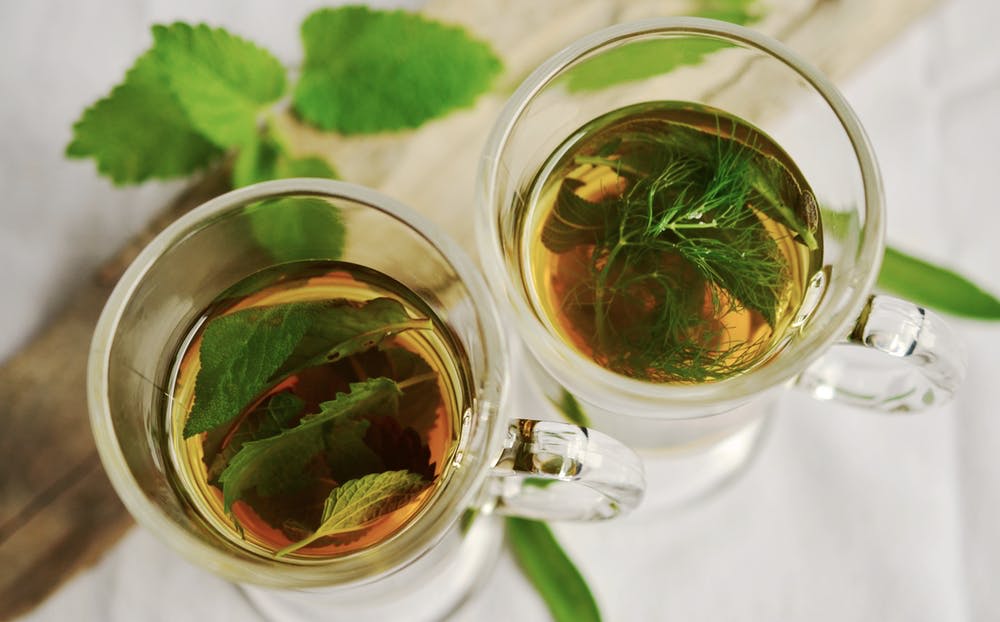Stressed out? You’re not alone. According to the National Institute of Mental Health, anxiety disorders currently affect 40 million adults in the United States, and are ranked as the top most common mental illness in the country. While said to be “highly treatable” by NIMH, only approximately a third of all anxiety sufferers seek out professional treatment. So what are the alternatives? Some sufferers swear by the effectiveness of certain herbs or other similar options, although WebMD disregards many such treatments as providing “insufficient evidence” to prove their claims. Others, however, bear the description of “possibly effective” on the site. In any case, let’s take a closer look at the most noteworthy herbs used for anxiety today.
Kava Kava
Native to the South Pacific, where it’s been used traditionally in drinks served for their sedative and anesthetic effects, Kava Kava is now available in capsule form or liquid drops (tinctures) in most U.S. health food or even some grocery stores. Known as an analgesic and muscle relaxer, Kava Kava has also been noted as a beneficial treatment for both depression and women experiencing menopausal discomforts. According to a Journal of Clinical Psychopharmacology study, the herb was given to a group which experienced significantly reduced anxiety in comparison to the placebo group.
Valerian
A known sedative, valerian is also commonly used as a sleep aid. While some prefer to use it in tea form over capsules, do remember: the smell of valerian is quite strong, not pleasant, and not easily forgotten, (an open bottle of capsules attracts my cat all the way from another room, for example). For best results, please use it only as directed, in the evening (or time when you can safely relax for a while), and with extreme caution — it should not be taken prior to driving, operating machinery or anything similar.
Lavender
Also effective as both a sleep aid and anxiety reliever, lavender has numerous uses including immunity boosting and hormone balancing. Best forms of use for this fragrant herb include drops of essential oil used either in a diffuser or rubbed into the temples, or steeped in hot water as a tea. Some prefer to use the herb in pillow sachets or eye pillows for its relaxing scent.
St. John’s Wort
Often taken with valerian for insomnia or anxiety, St. John’s Wort has been used medicinally for centuries for the treatment of mental disorders. Also used for depression, the flowering herb has shown its effectiveness as equal to Prozac (but with fewer side effects) and superior to placebo in the studies of physician Klaus Linde. However, once again, caution should be used in taking the herb, especially if you’re already prescribed antidepressants as the combination may cause “life-threatening increases in the neurotransmitter serotonin.” Additionally, complications are possible in the form of skin rashes, headaches, psychosis, confusion, inability to become pregnant, worsening of dementia symptoms, upset stomach, decreased effectiveness of birth control pills, HIV treatments, heart medications, etc. Finally, as in similar effects of Prozac, some individuals with bipolar disorder may experience episodes of mania when taking St. John’s Wort.
Passionflower
Derived from various parts of the actual passionflower, these big, purple beauties pack a powerful sedating effect. Parts of the flower that grow above the ground can be dried for tea, while the rest can be made into capsules and tincture drops. Studies have shown its effectiveness for alleviating anxiety are comparable to prescription medication. Of course, with such sedating effects, caution must also be used when taking it, especially if taken in combination with other sedating herbs like valerian or kava kava. Also, some experts recommend users don’t take it for longer than a month at a time.
Chamomile
Most popular in the form of tea taken at bedtime, these pretty little yellow flowers are known for their calming effects. Since compounds found in chamomile possess the ability to bind with the same brain receptors as medications like Valium, it’s no surprise that some studies have shown a substantial lowering of anxiety symptoms after eight weeks of treatment.
Licorice Root
Popular as a tea as well, licorice root is said to assist the body in moderating stress levels with its naturally occurring alternative hormone to cortisone. Also beneficial in normalizing blood sugar, stimulating the cranial and cerebrospinal fluids, and helping to maintain the overall functioning of the adrenal glands, licorice root is a multi-tasker.

